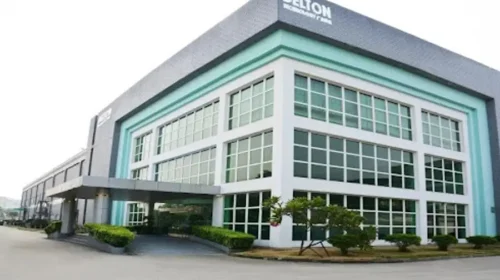VNET gets vote of confidence amid deepening AI focus

HSBC upgraded its rating on the data center operator to ‘buy,’ citing its focus on building up its artificial intelligence capabilities
Key Takeaways:
- HSBC upgraded its rating on VNET to “buy” from “hold” and more than doubled its target price for the company’s stock
- The bank highlighted the data center operator’s attention to artificial intelligence as it shifts its focus to customized services
By Warren Yang
Artificial intelligence (AI) has been all the rage for several years now, and, if anything, its momentum is only growing, unlike earlier crazes for technologies like virtual reality and blockchain that crested and then quickly faded. That AI craze may be bringing some much-needed new life to the prospects for VNET Group Inc. (VNET.US), which for years was considered the laggard among China’s three major private data center operators.
Last Wednesday, the company received a vote of confidence from HSBC, whose analyst Helen Fang upgraded her rating on the company to “buy” from “hold.” She also more than doubled her target price to $5.20 from a previous $2.09. The upgrade got investors excited, with VNET shares spiking as much as 5.6% at one point last Wednesday, before closing up 3.1% for the day.
Fang cited VNET’s AI focus as the main reason for the upgrade, particularly as its two major private sector competitors, Chindata and GDS (GDS.US; 9698.HK), are altering their strategic focus.
The rapid development of AI is a boon to companies like VNET, since demand is surging for data centers to manage a quickly growing volume of computing power that is migrating from individual PCs to the cloud. But the boom isn’t benefitting all data center operators equally. AI applications like machine learning require massive amounts of data and computing power, so data centers that want to host such services require advanced hardware.
Such equipment requires big upgrades, creating relatively high entry barriers for data center operators with less resources. HSBC’s Fang estimates that equipping a data center to give it sufficient capacity to process AI applications costs 500 million yuan ($71 million) to 600 million yuan in capital.
VNET can afford such expenditure, although it needs to rely heavily on external financing since the cash it generates from its operations is relatively small. The company certainly knows a thing or two about financing. It borrowed 690 million yuan from banks and raised another 517 million yuan from other types of financing in the second quarter alone, although it spent a substantial amount of that to repay its bank debt. The company had an unused credit line of 1.8 billion yuan at the end of June, on top of 2.2 billion yuan in cash and short-term investments that can be quickly liquidated.
VNET is using those financial resources to step up its AI game. The company is now looking to spend 5 billion yuan to 5.5 billion yuan on capital expenditure this year, significantly more than its original estimate of 3.7 billion yuan to 4.2 billion yuan.
“To capitalize on this rising AI-driven demand, we are planning to strategically invest in AI computing power,” Shen Chenggang, VNET’s rotating president, said on the company’s August conference call to discuss its second-quarter earnings. “By expanding our AI-related business and deepening our understanding of customers’ AI needs, we are well positioned to unleash our potential and create a new growth engine for the company.”
VNET is betting big on AI as part of efforts to shift away from standardized services to ones more customized for individual customers. The company’s revenue from such “wholesale” services jumped more than 80% year-over-year to 402 million yuan in the second quarter, even as its sales of traditional “retail” commoditized products decreased.
The big jump in customized services helped VNET’s overall top line revenue expand nearly 10% during the quarter. Nearly all of its wholesale service capacity is capable of meeting high-performance computing power requirements, like those for AI applications, Shen said.
Profitability improvements
VNET also enhanced its profitability significantly in the second quarter and swung to a net profit from a loss a year earlier. It did that partly by changing the way it estimates the lifetimes of its equipment to cut depreciation costs. But its operating expenses also fell, which indicates it’s making strides in reducing inefficiencies.
The company hasn’t reported an annual profit on a diluted basis in at least four years. Despite the latest quarterly profit, analysts polled by Yahoo Finance still expect VNET to report a loss for all 2024, before finally returning to an annual profit next year.
HSBC isn’t the only bank that’s turning upbeat on VNET lately. Citibank recently initiated coverage on the company with a “buy” rating, although its target price of $4 is much lower than HSBC’s. BofA has also raised its target price for VNET to $3.30 from $2.80 while maintaining a “buy” rating.
The mood for VNET may be turning optimistic in some corners of the investment community, but the cause appears more strategic than based on its finances. The cash it generates on its own isn’t nearly enough to cover its spending needs for business growth.
That means VNET has a lot of debt to service, including convertible notes that are coming due. In the first quarter, it spent a whopping $600 million to repurchase such securities maturing in 2026. Put another way, that’s more than 15 times the net cash it generated from its operations for the three-month period. VNET also has more convertible bonds coming due in 2027 and may have to redeem some or all of them if investors choose not to convert them to stock.
On its latest earnings call, VNET management sought to soothe investor concerns about its indebtedness. In response to a question about the company’s financing plans, CFO Wang Qiyu said that even if the company finances all of its new capex target for this year with debt, its total liabilities would still be less than 6.5 times its earnings before earnings before interest, taxes, depreciation and amortization (EBITDA), a level the company considers a “red line.”
In late 2022, VNET also became the subject of a bidding war to be taken private, with suitors including a group led by Chairman Sheng. But no deal ever materialized, even as rival Chindata was successfully privatized late last year.
Despite last week’s minor rally and a 16.4% rise in its shares this year, VNET stock still trades at a depressed price-to-sales (P/S) ratio of just 0.77, hardly what you’d expect for a company trying to position itself as an AI play. By comparison, GDS, which is placing its bets on a globalization campaign these days, trades at a far higher 2.7. Despite its laggard status in recent years, VNET’s relatively low valuation could make it a good bet for any investors that believe in its potential as a future important player in China’s AI space.
To subscribe to Bamboo Works weekly free newsletter, click here





